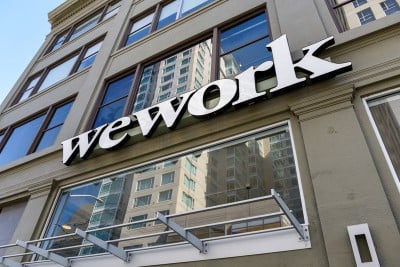The Fed’s Rate Hikes Have Yet to Dent Hiring

Klaus Vedfelt / Getty Images
If you’ve been reading reports of layoffs at large technology companies, today’s jobs report, which showed many employers are still in full-steam-ahead hiring mode, may come as a surprise.
Despite high-profile tech firms like Amazon, Twitter, and Facebook’s parent company Meta cutting their workforces, the overall economy actually added 263,000 jobs in November, the Bureau of Labor Statistics said Friday. That was a slowdown from the 283,000 gained in October, but blew past the 200,000 that economists expected.
The unemployment rate held steady at 3.7%—a number that is low by historical standards. Not only that, but increased earnings indicate employers are still competing fiercely for workers. Hourly earnings rose the most since January, making for a 5.1% boost over the last 12 months.
The continued high demand for labor is remarkable because the Federal Reserve has been trying since March to cool down the job market, fearing that wage hikes will stoke the fires of inflation. The increase in average pay in the last year is below the current 7.7% rate of inflation, but well above a level that would support the 2% inflation rate the Fed is aiming for.
In a speech this week, Fed chair Jerome Powell said the central bank’s campaign of interest rate hikes—which has increased borrowing costs on all kinds of loans and generally slowed the economy— is aimed at restoring balance in a job market where there are far more jobs than workers to fill them.
“Continue to underestimate the momentum of the U.S. labor market at your own peril,” said Nick Bunker, head of economic research at the Indeed Hiring Lab, in a commentary. “Jobs continue to be added at a pace that would have drawn cheers in 2019.”
Beneath the big picture, the report showed some shifting currents, as well as a few potential cracks. Industries related to shipping and selling products lost jobs, while in-person services gained them at a rapid clip, reflecting the pandemic’s fading influence on consumer habits. Employment in retail trade fell by 30,000 and warehousing and transportation lost 15,000 jobs, while leisure and hospitality gained 88,000.
One section of the BLS report showed the economy losing jobs instead of gaining them. The contradiction arose from the fact that the report includes the results of two separate surveys, one of employers and one of households. The employer survey—generally regarded by economists as the more reliable of the two—showed job growth, while the household survey showed employment declining by 138,000, the second month of job losses in a row.
“It’s possible that the household survey is picking up a downturn that is not yet showing up in the establishment survey,” said Heidi Shierholz, president of progressive think tank Economic Policy Institute, in a tweet.
Have a question, comment, or story to share? You can reach Diccon at [email protected].

